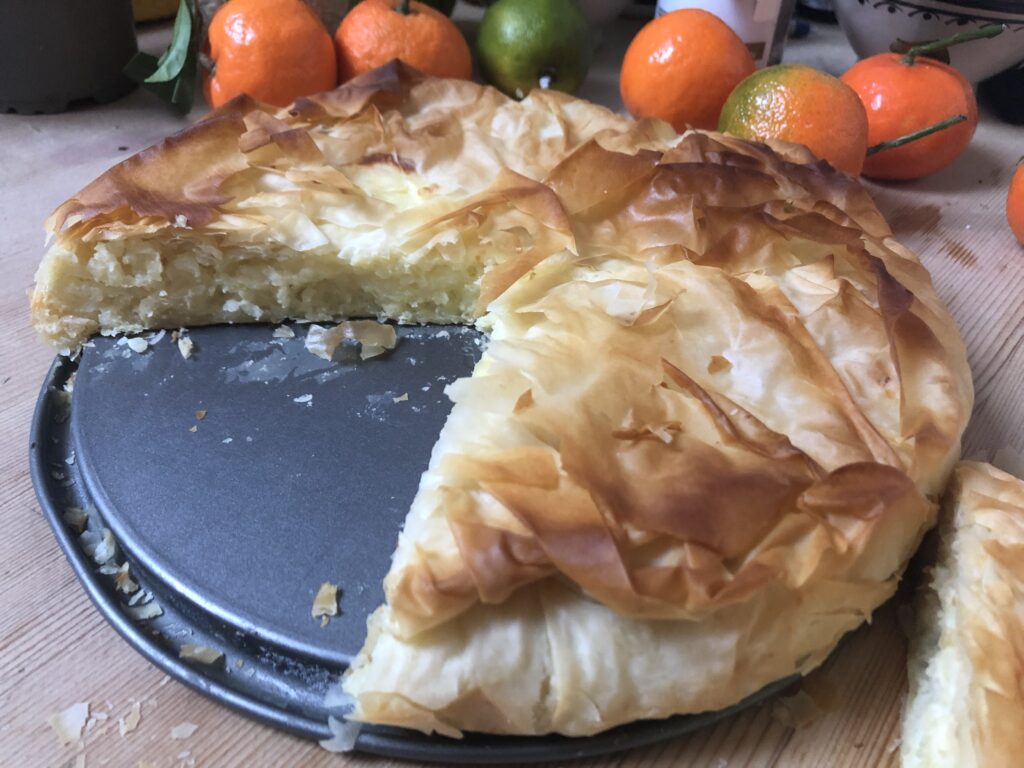Apart from solving crimes on the waters, the local harbour police in Liguria have some dubious duties onshore.

The Bagni Pietra Santa, a private beach establishment in Levanto
Gianni Bellocchio relaxes in a chair on the terrace, sipping a beer. Most of the beach’s clients have finished their lunch and have returned to the shade of their umbrellas for the siesta. His son Michele and the staff have cleaned up after the rush. They could be faster, but they never leave a crumb on the floor when he is around.
The waves are high, but it is still safe to swim. Beppe, the lifeguard, is scanning the waters. No woman is distracting him with chat and that is a good thing. His eyes wander down the beach until he spots Mamadou, lugging a large sack of wares on his back. Poor devil. A beautiful black woman with a basket on her head walks two steps behind him. “Things just got interesting,” Gianni thinks, then lights up a cigar as they approach the terrace.
Mamadou waves to Gianni and tries to enter the bar with the woman, but Gianni beckons them over to his chair, where he holds court.
“Aren’t you going to introduce me to your lovely friend, Mamadou?” he asks.
“This is my niece, Aaliyah,” Mamadou replies, then turns and says something in Nigerian to her. Aaliyah takes the basket off her head and places it on the ground in order to nod at Gianni.
Gianni shakes her hand, then picks up her basket and carries it over to an unoccupied umbrella. Aaliyah collapses on the beach chair and smiles at him in gratitude. Ever so gallant, Gianni takes a bow.
Back on the terrace, Gianni jabs his finger into Mamadou’s arm.
“If you tell me that woman is your niece one more time, I am throwing you off my beach…”
“But she is…on my wife’s side,” says Mamadou.
Gianni bursts out laughing.
“Liar! Allah will not be pleased with you, Mamadou!”
“Leave Allah out of this…”
“Admit it, you dog. That woman is not your niece.”
Mamadou shrugs his shoulders and exhales.
“She is not my niece.”
Satisfied, Gianni strolls into the bar, takes two mineral waters and sandwiches out of the fridge and hands them to Mamadou.
“You’ve got good taste, my man.”
“Business is slow, but I can pay you next week,” Mamadou replies.
“Forget it. Now go feed your lady.”
Mamadou freezes.
“What’s wrong?” Gianni asks.
Mamadou drops the lunch, grabs his bag and races to the umbrella. Gianni watches him pull Aaliyah out of the chair and the two of them hobble down the beach under their loads.
Gianni purses his lips, mystified. He turns around to find two officers from the local harbour police wandering into the bar, and heaves a sigh. There will be an inspection. He can’t remember if he is storing anymore of Mamadou’s jewelry and caftans in the back room. So far, their deal has always worked for both of them. At the end of the day, he leaves the shower unlocked. That way Mamadou can wash off before heading back to the godforsaken barrack where he lives with the pack of other vendors near the monastery. In exchange, Mamadou rules this beach and nobody would dare sleep under the changing cabins or break into the bar. “Letting an illegal take a shower is not against the law, but storing his contraband is an act of idiocy,” he tells himself.
Gianni folds his arms and observes these two men from the doorway.
The first officer walks around the bar, inspecting the floor and surfaces for dirt, but Michele has left it spotless. The second officer is admiring the artwork on the walls. Gianni smiles to himself when the officer’s eyes linger at his signed cartoon by George Grosz, and has to stop himself from walking over and telling the man how he met the artist in New York during the 50’s.
“How can I help you, Gentlemen?” he asks.
“I am Officer Ulivi, and this is Officer Danero. We come from Deiva Marina. If you would show us your back room…” the first officer replies.
Gianni holds his breath while Ulivi scans the shelves with his beady eyes. Finding no filth or illicit objects, he barks at his colleague.
“The showers, Danero!”
Danero pulls himself away from the wall and Gianni shows him the shower. Danero takes no notice of the used bar of soap that Mamadou has left in the receptacle.
“It could belong to any of the clients, but I will have to tell him to be more careful,” Gianni thinks.
“Impeccable,” Danero calls out, rolling his eyes.
“You have a nice place here. Are you still serving lunch?” Danero asks.
Gianni relaxes. Drinks and food do wonders for a man’s mood.
Gianni pours a glass of Lievàntu wine for Danero and arranges two slices of torta di riso on a plate. Ulivi has ordered an espresso and a brioche with jam. “What kind of killjoy eats breakfast so late in the afternoon?” he thinks.
Danero bites into the torta di riso. “Delicious. The crust is as thin as a music sheet…”
“Thank you! We order everything from Bianchetti.” Gianni says. “They do the best pies in town.”
Danero turns to Ulivi. “Here, have a piece. We can’t get anything like this in Deiva Marina…”
Ulivi ignores him and sips his coffee, as if he were ingesting liquid alimony.
Gianni and Danero fall into conversation about the Lievàntu wine, which Danero thinks is better than what Vernazza has produced in the last years. Gianni agrees and tops up his glass. This is a man who knows how to make the most of a day with a son of a bitch for a partner. Even if he enjoys the banter, he knows it is best so send these characters on their way, pronto.
Ulivi coughs, and holds up the two halves of his brioche.
“There is no jam in my brioche.”
Gianni looks inside. “How strange. Let me get you another one,” he replies, then starts over towards the pastry case.
Ulivi cracks an insipid smile and takes a ledger out of his satchel.
“Don’t bother. According to article number 79 B, you have willfully violated the law.”
“But Bianchetti must have made a mistake. This has never happened before,” Gianni protests.
Ulivi strides over to the pastry case, and points at the obligatory list of ingredients for the brioches attached to the glass.
“Selling food products and deceiving the clientele regarding the ingredients is punishable by law up to 5000 Euros!”
Gianni’s jaw drops and he turns to Danero, who looks embarrassed.
“Come on, Ulivi…give him a break. It was a mistake!” Danero says.
Ulivi scowls at Danero, then rips a receipt out of his ledger and hands it to Gianni.
Gianni reads it and slams it on the counter. “I will see you in court,” he says.
As the officers leave the bar, Danero looks over his shoulder one last time. “The people you have to put up with to get by,” Gianni thinks.
The following morning, Gianni stops by Franceschino’s fish shop for a kilo of mussels. When the client behind him is served and walks out the door, he leans over the counter and asks Franceschino, “So…have the officers from Deiva Marina ever paid you a visit?”
Franceschino hacks the head off an anchovy in frustration.
“They come in here all the time to see if they can catch me selling any endangered fish. Last time, after finding nothing, that Ulivi guy threatened to give me a fine because he didn’t like the way my eel was looking at him!”
Gianni shakes his head in commiseration. Even the dead eel knew this man was a bad actor.
Gianni’s eyes scan the courtroom of La Spezia. It is packed with merchants from Levanto, who wish to show their solidarity. Touched, he nods back at them. Danero sits on the opposite side of the room from Ulivi. Both of them are in uniform, which gives them gravitas, but something is not right between them.
Judge Cesario appears bored out of his mind as he listens to Ulivi drone on about protecting the consumer from deceitful merchants such as Bellocchio. Gianni replies that he could never have known that the brioche was empty unless he had bitten into it himself. “It is men like Officer Ulivi who are bringing our great country to a standstill with their petty rules and bureaucracy!” he declares.
Judge Cesario orders Danero to the stand, and asks him to recount the events of that fateful day. Danero replies, “I was not looking into the abyss of my colleague’s brioche. I was enjoying the wine I was served and the art on the walls.” All eyes of the court follow him back to his chair.
Gianni watches Judge Cesario lean back and deliberate the case for a few minutes. He cannot believe that Danero did not stand up for his partner. It will probably cost him his job.
Judge Cesario leans forward and announces to the court, “Mistakes are made along the path to excellence.” He then turns his head towards Ulivi. “And you, Officer, would do well to police our waters instead of worrying about the existence of jam onshore.”
Gianni’ smiles in triumph as Judge Cesario declares him innocent and orders the local harbour police to pay all legal expenses incurred.
“You are all invited to celebrate with me at the Pietra Santa this evening. Drinks and food are on the house!” he calls out to the Levanto merchants, who cheer.
Gianni walks through the courthouse parking lot, hoping to find Danero and thank him. Finally, he spots Ulivi opening the door of his car. Danero walks up to Ulivi and taps him on the shoulder. Ulivi turns and looks at him with contempt. Danero takes off his hat and badge and hands them to Ulivi. Ulivi tries to give them back to Danero, who holds his hands up in the air. “I’m through. I was never a man of the law,” he tells Ulivi. Gianni watches the two men shake hands and go their separate ways.
The following summer, Gianni sits in his chair on the terrace, observing Danero dry his fiancé’s back off after her swim. “Such a pretty woman! The man has good taste,” he thinks. She lies face down on the beach bed under their umbrella and Danero rubs cream on her shoulders. “Oh to be that young again and in love,” he thinks, then lights up a cigar. Mamadou approaches them and displays an aquamarine caftan threaded with silver that glints in the sun. The fiancé inspects it and turns to Danero, who motions to Mamadou that negotiations may begin. Encouraged, Mamadou lays a sheet on the ground and pulls a rainbow of colors out of his bag. The fiancé fingers a white caftan and holds it up to the light. Gianni ambles over to his new guests and says, “Treat them well, Mamadou, treat them well.”
“Torte”, whether sweet or savory, are basic to the gastronomy of the Riviera, with the earliest recorded recipe appearing in the Libro per Cuoco, circa 1300. Flour in Liguria was in short supply up until 1900, but even after this date, the thrifty, often impoverished people had to measure it out carefully. My village did not even have a road to Levanto until the mid-seventies. To reach the shops in town, the peasants rode on donkeys down a very steep path called the “mulattiera” (mule’s way), and only bought what they could not grow or produce themselves. With the flour they could afford and carry back up the hill, they made bread and torte regularly. Fresh pasta was only served on the high holidays.
Two sheets of paper-thin dough can hold any vegetable grown in the garden, but grains, eggs, and cheese are all fair game. Although time consuming to make, torte are an ingenious and delicious way to fill the stomachs of a large family.
If you like arancini di riso, you will most likely enjoy a slice of savory torta di riso. In Liguria, the specialty shops sell it as a light lunch option or street food, and it tastes just as good tepid as straight out of the oven. I also recommend serving small squares of it with white wine for an aperitif.
For the recipe, I consulted my friend and neighbour Angela, who kindly gave me her mother’s version, and another one from a book called La Cucina Genovese, published by the Il Secolo newspaper. Here is my version, based on her help. As usual, I skip making my own pastry, as phyllo dough is an excellent substitute.
Torta di Riso Salata
The Ingredients
For the Pastry:
4 to 5 sheets of phyllo dough
Olive oil and flour for greasing the pan
For the Filling:
200 grams of arborio or carnaroli rice
Salt and pepper
2 tbsp of olive oil
2 eggs
The zest of half a lemon
40 to 50 grams of grated parmigiano reggiano, or a mixture of parmigiano reggiano and pecorino romano
Optional: a few leaves of fresh marjoram (not dried), and/or 100 grams of ricotta
The Method
Boil the rice in lightly salted water with one tablespoon of oil, which will prevent the grains from sticking together. Taste a grain. When it is al dente, take rice off the stove, drain into a colander, and rinse under tap water. Shake off as much water as possible, place in a bowl, then mix in another tablespoon of oil.
Beat the eggs in another bowl. Add eggs, lemon peel, and the optional marjoram and ricotta. Pour this over the rice and mix well. Taste and adjust seasoning if necessary.
Preheat the oven to 180 degrees centigrade.
Lightly oil a 26 centimeter (10-inch) spring-clip baking pan. Sprinkle with a few tablespoons of flour and shake away the excess.
Pour some olive oil (approx. 4 tablespoons) into a small bowl and make sure a pastry brush is handy. You will need to work quickly, as filo dough tends to dry out and become brittle in no time.
Open the phyllo dough package and lay the stack of leaves out flat. Brush the thinnest coat of olive oil over the leaf on the top of the stack, then lay it over the bottom of the pan, allowing the ends to hang down over the rim. Brush the second sheet with oil, then lay it across the previous one so that the sides of the pan are covered all the way around. Repeat this process with 3 to 4 more sheets.
Fill the pan with the rice mixture. Fold the overhanging pieces of phyllo back over the top, one at a time, as if wrapping a gift. Lightly brush with more olive oil. The Ligurians often leave a little bald patch in the middle, but I prefer to cover the entire top with a few more filo sheets in a decorative manner. Brush lightly with oil as well, so that they do not burn.
Bake for 30 to 45, minutes, or until golden.

